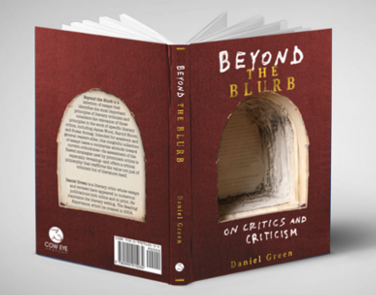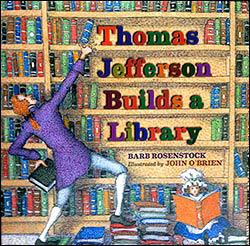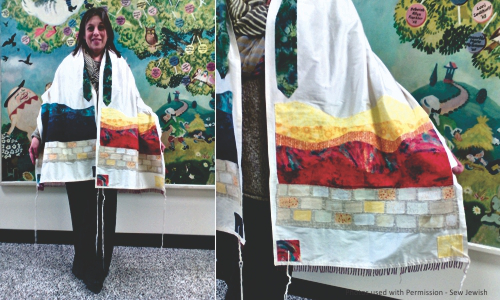 When I first discovered this book I looked on it with skepticism, because it comes from the once-fake (or should I say spoof?) publisher Cow Eye Press which produced the (essentially self-published?) book Cow Country by the pseudonymous author Adrian Jones Pearson (who some thought might be Thomas Pynchon in disguise). But no, it was actually this guy. Like, they even made a fake website for the school mentioned in the book, so the rabbit hole ran pretty deep.
When I first discovered this book I looked on it with skepticism, because it comes from the once-fake (or should I say spoof?) publisher Cow Eye Press which produced the (essentially self-published?) book Cow Country by the pseudonymous author Adrian Jones Pearson (who some thought might be Thomas Pynchon in disguise). But no, it was actually this guy. Like, they even made a fake website for the school mentioned in the book, so the rabbit hole ran pretty deep.
So, as you can see, I laughed upon seeing Beyond the Blurb. I love this sort of conspiracy-laden thing but something wasn’t clicking. I never read Cow Country because, like others have said, the mystery is more entertaining. I thought Cow Eye Press was just as fake as the Community College, because they share the same namesake — like Oxford University Press, University of Chicago Press, etc. But that’s no longer the case. Cow Eye Press went through a website upgrade. Later, they were promoting a book on facebook that seemed…real. They were really going with this thing.
Their statement to authors (whom they are accepting submissions from apparently):
If you are planning to submit your work to Cow Eye Press for consideration it is most likely due to the recent attention given to our first release, Cow Country. In all honesty, the modest commercial success of this novel was a total fluke and in no way attributable to our professionalism and/or expertise in the area of promoting new works of literature to an indifferent reading public. We are certainly not experts in publishing, nor would we ever want to be. That said, we do love meaningful expressions of literature, respect the efforts of any independent author who has the courage to advocate for his/her work amid such a hostile publishing climate, and MAY be able to exploit our unexpected incursion onto the literary scene to help your work find its audience.
Please also keep in mind that Cow Eye Press is a very small publisher whose plans are to publish no more than ONE BOOK PER QUARTER. If you are seeking a large traditional publisher – with the numerous advantages that this brings – you will likely want to look elsewhere. Our modest publishing plans, coupled with the huge influx of submissions we’ve begun to receive, also means that we will, in all likelihood, become yet another boot upon your soul as you search for a home for your work. Please accept our sincere apologies for that in advance.
The complicated explanation of where this book comes from should show you why I was interested in it. Not that I purchased it right away. In fact, my fear of looking like a fool for “falling for it” kept me just angry enough to keep clicking — to keep trying to expose the lie. Being the librarian that I am, I researched this “Daniel Green” to the fullest extent. He seemed like a real enough human. He has a hard-to-navigate blog called ‘The Reading Experience’ that seems genuine. He even got me to read this book because of his paradigm-shifting critique of it. What made it all hard to judge, for me, is the jargon and theory and literary culture he uses in his online work — I’m just not well versed in what he sometimes talks about. Honestly, it could be as fake as this blog saying that Virginia Woolf was E.V. Odle (just to be clear: she was not) and I would never know the difference. There was a confidence about him and the mysterious Cow Eye Press that was thrillingly untrustworthy. However, this didn’t stop me from following them and accepting their truths that I did/do happen to understand or agree with.
I’m in my 20s. I don’t have a PhD in Literature. Be nice to me.
When I saw he made it onto the Biblioklept blog, I started to take him a bit more seriously. I tried to interlibrary loan the book a million times before committing to purchasing it. I’m so scared of being taken. It’s the librarian in me. My anti-fake news reputation is at stake. But no libraries had it. That’s the fault of libraries — never seeking out the indie publishers. But that’s a rant for another day.
Eventually I did buy it. And I read it. I liked it. I found myself writing in the margins. One thing I said: “Daniel Green has no voice of his own — his points are his voice and take our attention.” I’m not sure what I meant by that anymore, but I wouldn’t be surprised if I meant that his work can’t be summed up or reviewed. You have to use quotes — his “points” — from the work itself to explain it. That’s really the only thing I have left to say about it. I sure don’t know what else to say in this “review.” His work speaks for itself. It is, after all, about reviewing.
Quotes to substitute my review:
“As much now as in 1974, new and experimental writers need not apply, unless the writer has the right pedigree (respected writing program, previous publication in eminent journals), the right publisher, has already achieved notoriety in some other way, or has written a book so unusual it has some interest as a curiosity. The influences on book reviewing appear to be such that what emerges when considering print book reviewing as a whole is a collective disdain for work that introduces novelty or uncertainty into the process of judgement.
I aspire to become an academic critic precisely because so much general interest criticism was focused on the ‘mushy middle’ of literary fiction and avoided the books I was most interested in reading. Academic journals were much more likely to feature experimental and unconventional writers (some journals concentrated exclusively on such writers) and gave them more than the cursory treatment afforded by most book reviews. Academic criticism no longer manifests these virtues, however. It is as agenda-ridden as literary journalism, although its agenda emphasizes a different kind of propriety, the propriety of political and cultural analysis (in its way similar to the kind of analysis favored by the New York Intellectuals)….
At one time, I held out hope that the ‘literary weblog’ would provide a plausible alternative to print book reviewing. I still think that, in theory and potential, blogs could still be perfectly good sources of serious literary criticism. There is nothing in the nature of the cyber medium that precludes the blog from being the publishing vehicle for serious writing of any kind. If serious critics, facing the likely demise of newspaper and magazine reviewing in the not distant future, turn to the cyber/blogosphere as an available substitute, literary criticism will flourish well enough.”
“Mostly devoted to superficial appraisals of potboilers and best-sellers, these blogs actively seek to be conduits of publishing propaganda (in the guise of ‘promoting’ books). They have apparently become the most popular type of ‘literary’ blog, and if ‘book blog’ eventually becomes the name applied mostly to such weblogs, the future of literary criticism online is bleak indeed.”
“In some of her essays Sontag is more of a theoretician than a close reader, but this hardly disqualifies her from holding at the center of her theory about the appropriate response to art a view that such a response out to be closer to ‘erotics’ than to hermeneutics.”
“But what if the experience of art does contribute to human improvement? Not because art’s moralizing or ‘spiritual’ qualities directly lead to social change or self-actualization, but because close consideration of art enhances our ability to have fulfilling experiences? Because complex works of art encourage us to pay attention in a way that does not direct it into pre-existing channels or entirely cut off the very possibility of sustained, fully-engrossed attention by settling for the superficial or the sanctimonious… But what if it’s why the arts are enjoyable ‘to those who enjoy them’ that’s important? Not because it confers some special honor on their declared tastes but because the enjoyment comes from having one’s powers of apprehension challenged?”
This post was updated on 1/3/17.
Advertisements Share this:




